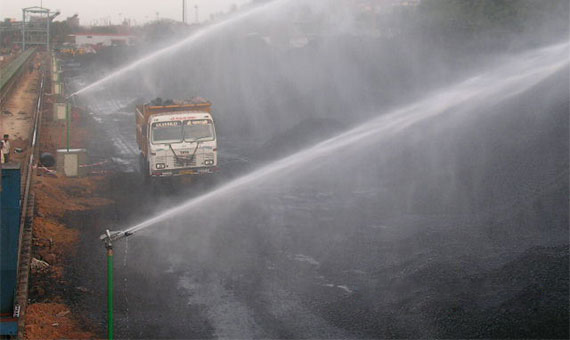Dust Suppression Systems in West Bengal: Tackling Air Quality Challenges
Introduction
West Bengal, a state rich in culture, history, and diversity, also faces environmental challenges, one of which is air pollution. Dust emissions from various sources, including construction sites, industries, and unpaved roads, contribute significantly to the air quality issues in the state.
To combat this problem, dust suppression systems have gained prominence in West Bengal as an effective means to control dust and improve air quality. In this blog, we will explore the importance of dust suppression systems in West Bengal and how they are making a positive impact on the environment and public health.
The Dust Problem in West Bengal
West Bengal, with its rapidly growing urban areas and industrial regions, faces a substantial dust problem. Dust particles in the air, particularly fine particulate matter (PM2.5), pose severe health risks, including respiratory diseases, heart problems, and even premature death. The state's air quality often falls below acceptable levels, leading to concerns about the well-being of its residents.
Sources of Dust Pollution:
a. Construction Sites: The construction industry, both residential and commercial, is booming in West Bengal. While this is a sign of development, it also means an increase in construction-related dust emissions.
b. Industrial Activities: The state hosts various industries, including manufacturing and mining, which release dust particles into the atmosphere.
c. Unpaved Roads: Many areas in West Bengal have unpaved or poorly maintained roads, which generate dust when vehicles pass through them.
Dust Suppression Systems: A Solution
To address these concerns and protect public health, dust suppression systems have become a vital tool in West Bengal's environmental management efforts.
Road Dust Suppression:
a. Dust Control Agents: Dust control agents, such as water, dust suppressants, and binders, are applied to roads to reduce dust emissions. These solutions trap dust particles, preventing them from becoming airborne.
b. Mechanical Street Sweeping: Mechanized street sweepers are used to clean roads, removing accumulated dust and debris.
c. Paved Roads: Increasing the number of paved roads reduces dust emissions compared to unpaved ones.
Construction Site Dust Control:
a. Water Spraying: Construction sites employ water spraying systems to keep the ground moist and reduce airborne dust.
b. Dust Screens: Dust screens are installed around construction sites to contain dust within the premises.
Industrial Dust Suppression:
a. Dust Collectors: Industries use dust collectors and filtration systems to capture and control dust emissions from their operations.
b. Enclosures: Enclosing industrial processes and equipment can help prevent dust from escaping into the environment.
Impact on Air Quality
The implementation of dust suppression systems in West Bengal has shown promising results in improving air quality:
Reduced PM2.5 Levels: Dust suppression measures have led to a noticeable reduction in fine particulate matter levels in the air, contributing to healthier living conditions.
Improved Respiratory Health: As dust levels have decreased, the incidence of respiratory diseases among the population has seen a decline, especially in vulnerable groups like children and the elderly.
Enhanced Quality of Life: With cleaner air, the overall quality of life for West Bengal's residents has improved, making outdoor activities more enjoyable and safe.
Challenges and Future Directions
While dust suppression systems have made a positive impact, challenges remain:
Sustainability: It's essential to ensure that dust suppression methods are sustainable in the long term, both economically and environmentally.
Awareness and Enforcement: Raising awareness about the importance of dust control and enforcing regulations is critical to maintaining progress.
Technological Advancements: West Bengal can explore advanced dust suppression technologies, such as remote monitoring and automation, for more efficient and effective dust control.
Conclusion
Dust suppression systems in West Bengal have emerged as a necessary response to the pressing issue of air pollution caused by dust emissions. By implementing various strategies like road dust suppression, construction site dust control, and industrial dust suppression, the state has made commendable progress in improving air quality and public health.
As West Bengal continues to grow and develop, the focus on dust suppression systems and the commitment to environmental protection will be essential for the well-being of its residents and the sustainable growth of the state. It's imperative to stay proactive in addressing air quality challenges, ensuring that future generations can enjoy clean and healthy air in this beautiful and diverse region.




Comments
Post a Comment